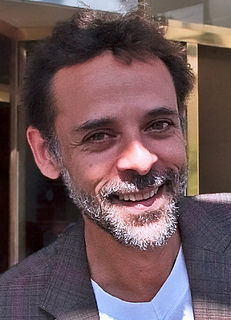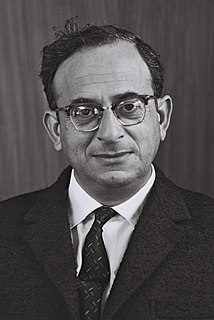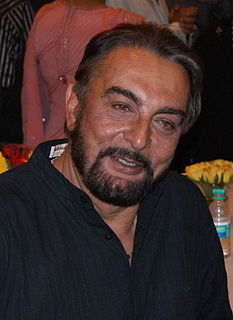A Quote by Alexander Siddig
I'm one of the luckiest Arab actors on the planet, because I've done, I think, two of the finest Arab roles that have been out in mainstream cinema for a very long time.
Related Quotes
I'm from a Lebanese-American family. And I've been had lot of contacts and - with Arab-American community, especially Arab-American filmmakers and actors and so forth. It's a community that, a minority that really hasn't been heard from enough. And so many of the stories that are told about Arab-Americans these days are just negative portrayals in the news, but also in television and film. So we're - we set out to try and offset some of those stereotypes.
In many parts of the world, including the Arab world, the Latin American world, and even parts of the Western world, there is a tradition of writers being quite engaged. Particularly in the Arab world you have had very, very strong traditions of literature and poetry and most of the writers have been deeply committed to the cause of the Arab nation.
Traditionally Marxism attracts the oppressed. This, however, is not the case in the Arab nation... The socialist programs in Arab history did not always come from the poor, but from men who had known no oppression and became the leaders of the poor. The Arab nation has never been as class-conscious as other nations.
I think the Arab world has no personality cult situation going on that they have in much of the Western world, South America included. They are a culture of words and religion, and you won't see manycsa charismatic people on Al Jazeera, except for the ones who are now learned presenters. You see Arab leaders getting on TV - which was very hard for me working out how to do the part, since Arab leaders are looking somnambulant, staring into their microphone, almost as if someone's got a hand up their back.
Recall that the United Nations commissioned Arab scholars and analysts to publish the Arab Human Development Report. What causes the backwardness, the scholars wondered, of 22 Arab states, covering nearly 300 million people? Their conclusion? Of all world regions, the Arab countries scored the lowest in freedom, media independence, civil liberties, political process and political rights.
Jewish villages were built in the place of Arab villages. You do not even know the names of these Arab villages, and I do not blame you, because these geography books no longer exist; not only do the books not exist, the Arab villages are not there either. Nahalal arose in the place of Mahalul, Gevat - in the place of Jibta, Sarid - in the place of Haneifs and Kefar Yehoshua - in the place of Tell Shaman. There is no one place built in this country that did not have a former Arab population.
All mankind is from Adam and Eve, an Arab has no superiority over a non-Arab nor a non-Arab has any superiority over an Arab; Learn that every Muslim is a brother to every Muslim and that the Muslims constitute one brotherhood. Nothing shall be legitimate to a Muslim which belongs to a fellow Muslim unless it was given freely and willingly. Do not, therefore, do injustice to yourselves.
I don't think the Arab Spring had much to do with energy. I think it was just the opposite, in fact. I think the Arab Spring happened because particularly young people knew they were living in a context where they could not realize their full potential, that they are being kept down by their own governments.
It was tricky [to write about Israelis], because everyone has an opinion about the Arab - Israeli conflict, and when I first started writing these stories, I was working for an Arab - Israeli human rights group. It was during the Second Intifada. It was this totally violent and intense time, and I think there's a part of me where I don't know how to write about that situation without getting my politics out of my messages, and that's something that was important for me not to do in this book.


































